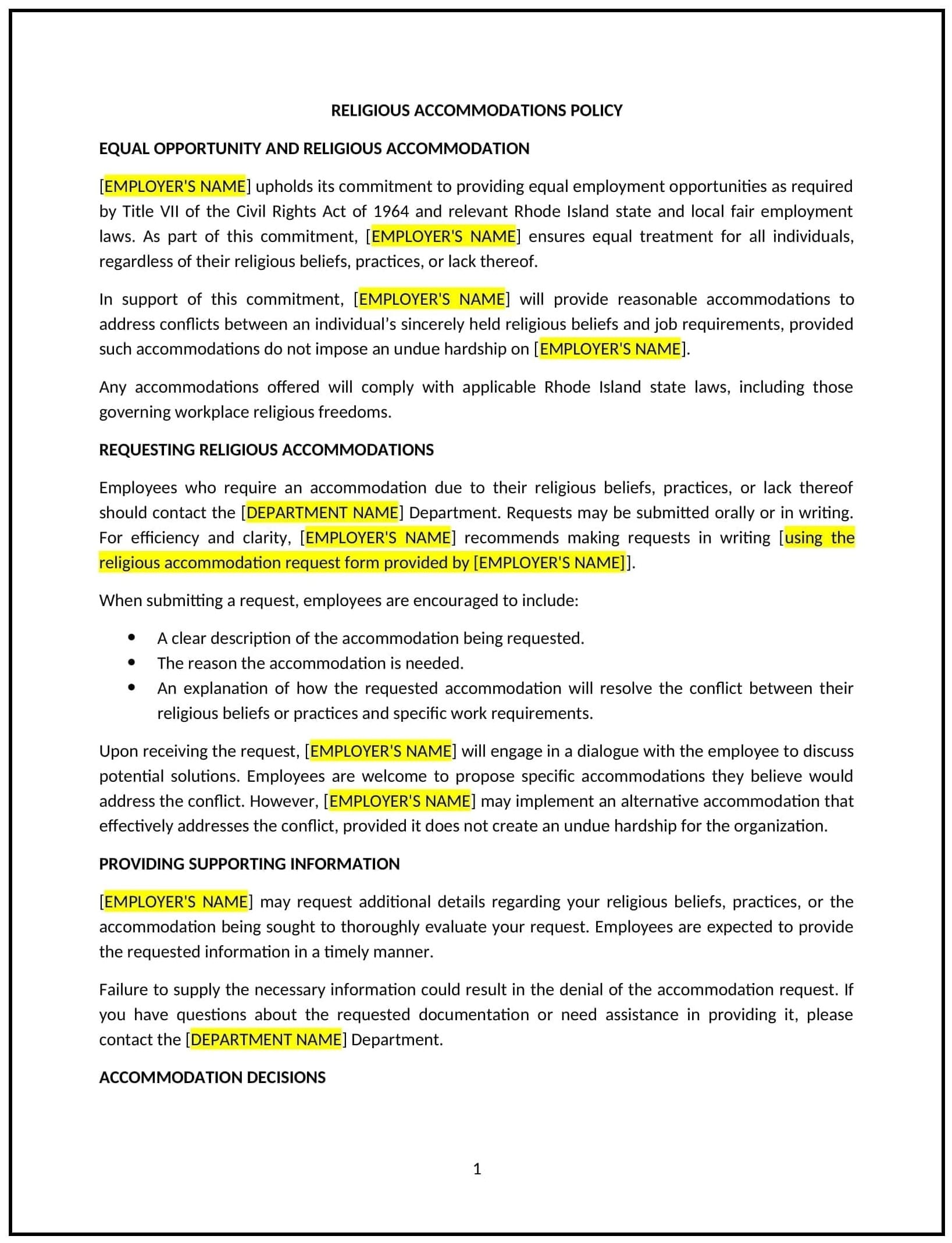Religious accommodations policy (Rhode Island): Free template
Got contracts to review? While you're here for policies, let Cobrief make contract review effortless—start your free review now.

Customize this template for free
Religious accommodations policy (Rhode Island)
This religious accommodations policy is designed to help Rhode Island businesses establish guidelines for accommodating employees’ religious beliefs and practices. It outlines procedures for requesting accommodations, evaluating requests, and maintaining a respectful workplace.
By adopting this policy, businesses can promote inclusivity, respect diversity, and create a supportive environment for employees of all faiths.
How to use this religious accommodations policy (Rhode Island)
- Define scope: Clarify which types of religious practices and beliefs are covered, such as dress codes, prayer times, or dietary restrictions.
- Establish request procedures: Outline steps for employees to request religious accommodations, including required documentation.
- Set evaluation criteria: Provide guidelines for evaluating accommodation requests, considering factors such as business needs and feasibility.
- Address workplace respect: Encourage employees to respect diverse religious beliefs and practices in the workplace.
- Train managers: Educate supervisors on handling accommodation requests and fostering an inclusive environment.
- Monitor compliance: Regularly review accommodation requests to ensure adherence to the policy.
- Review and update: Assess the policy annually to ensure it aligns with evolving workplace needs and best practices.
Benefits of using this religious accommodations policy (Rhode Island)
This policy offers several advantages for Rhode Island businesses:
- Promotes inclusivity: Demonstrates a commitment to respecting and accommodating diverse religious beliefs.
- Enhances employee morale: Shows employees that their faith and practices are valued, improving loyalty and satisfaction.
- Reduces conflicts: Provides clear guidelines for addressing religious accommodations, minimizing misunderstandings or disputes.
- Supports diversity: Fosters a workplace culture that celebrates and respects differences.
- Aligns with best practices: Offers a structured approach to managing religious accommodations, enhancing workplace harmony.
Tips for using this religious accommodations policy (Rhode Island)
- Communicate the policy: Share the policy with employees and include it in the employee handbook.
- Provide training: Educate managers on handling accommodation requests and fostering an inclusive environment.
- Monitor compliance: Regularly review accommodation requests to ensure adherence to the policy.
- Address issues promptly: Take corrective action if accommodation requests are mishandled or workplace conflicts arise.
- Update regularly: Assess the policy annually to ensure it aligns with evolving workplace needs and best practices.